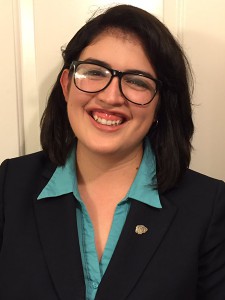Originally published October 4, 2016
By Mary Fuentes
Senior, Cellular and Molecular Biochemistry
This summer, I was given the opportunity to travel to San Jose, Costa Rica for seven weeks through the Minority Health International Research Training Program (MHIRT), which allows students to work and be part of an international research setting. This experience not only opened my eyes to health-related research, but it allowed me to immerse myself in a different culture and learn so much from everyone I met along my journey.

Photo courtesy of Mary Fuentes
I will never forget how excited I felt once I arrived in Costa Rica, ready to participate in a life-changing opportunity. I was able to work under the mentorship of Dr. Kenia Barrantes Jiménez in the Instituto de Investigaciones en Salud (INISA) at the University of Costa Rica. My research focused on analyzing the biological activity of synthetic compounds with the goal of finding potential therapeutic treatments against cancer and microorganisms that are resistant to current antibiotic treatments.
I found my research experience to be a unique one, as I was not only conducting research with my mentor in INISA but I was also doing collaboration projects with the University of Costa Rica’s School of Chemistry and School of Medicine. My favorite part of this experience was how my mentor completely immersed and involved me in the research project, from meeting with the actual people who synthesized the compounds we were testing to discussing future paths the investigation could take. This allowed me to meet, work and receive advice from many different scholars that taught me new lab techniques, opened my eyes to different components of what make a research project, and helped mold my identity as a researcher.
One thing I will never forget from this experience was the excitement that my mentor and I felt when we obtained the results we were looking for after a week of intensive work that had given us no results. After a quick in-lab celebration, we went back to work with more excitement and determination.
In such a short amount of time, my mentor and I were able to successfully screen and find some compounds that revealed biological activity against these microorganisms and one cancer cell line. The lessons I received in Costa Rica will always stay close to my heart, as they have helped me decide my career goals and show me the importance of research on a global scale. In the future, I plan to continue my education by attending graduate school, pursuing a Ph.D., and continuing to conduct research that focuses on closing health disparity gaps. This unforgettable experience was so special to me as it showed me that science, discovery and the need for finding innovative solutions regarding health and health disparities transcend world boundaries.